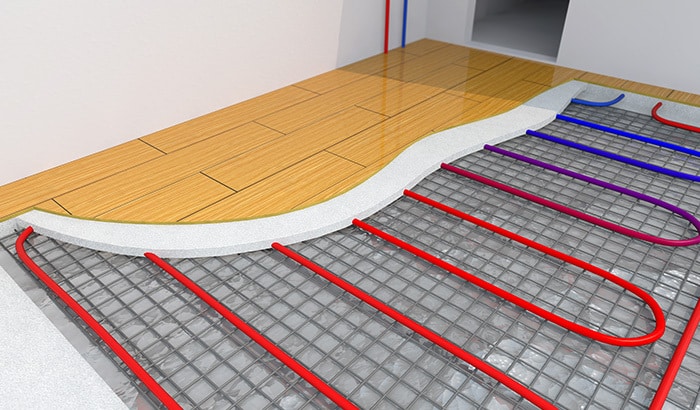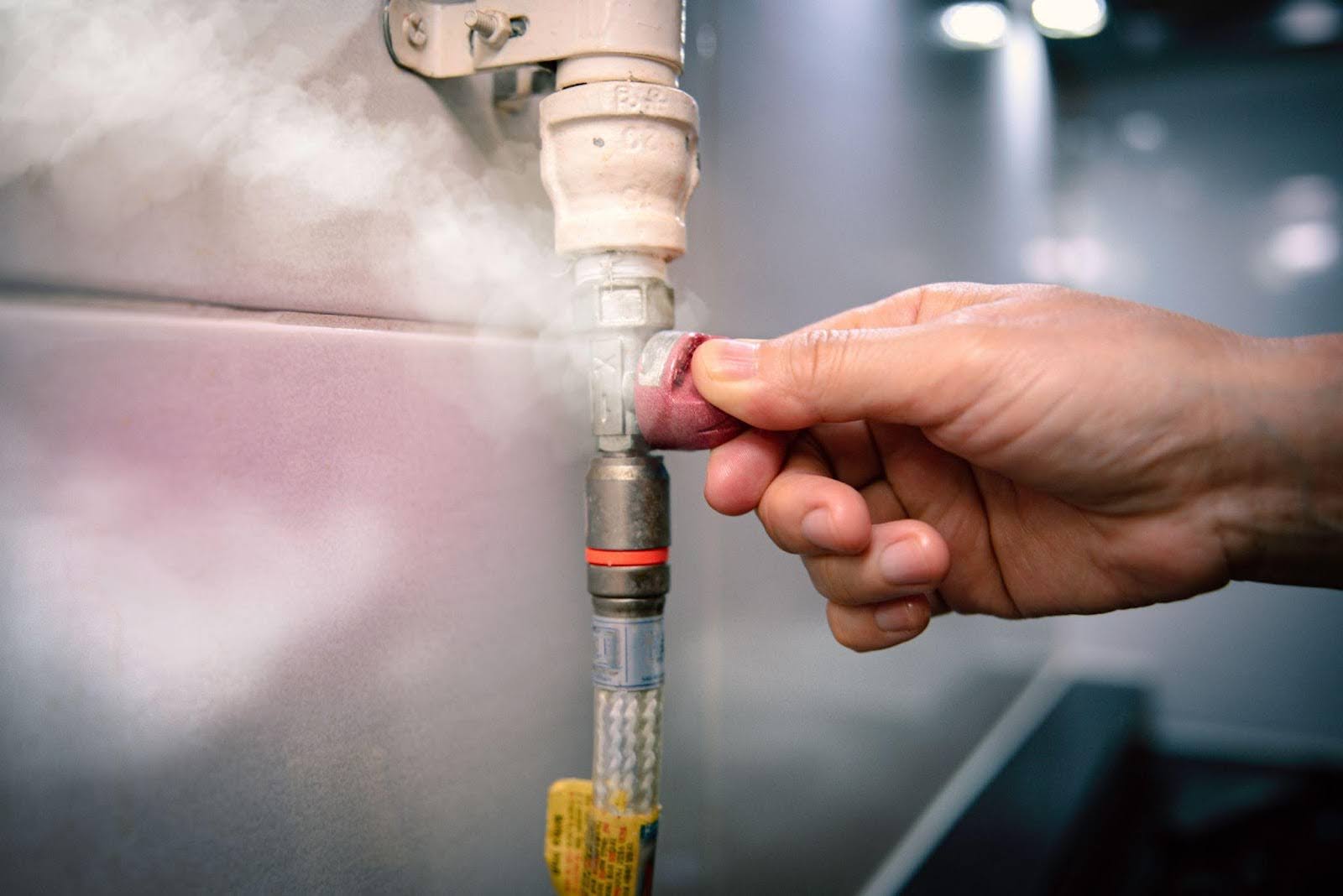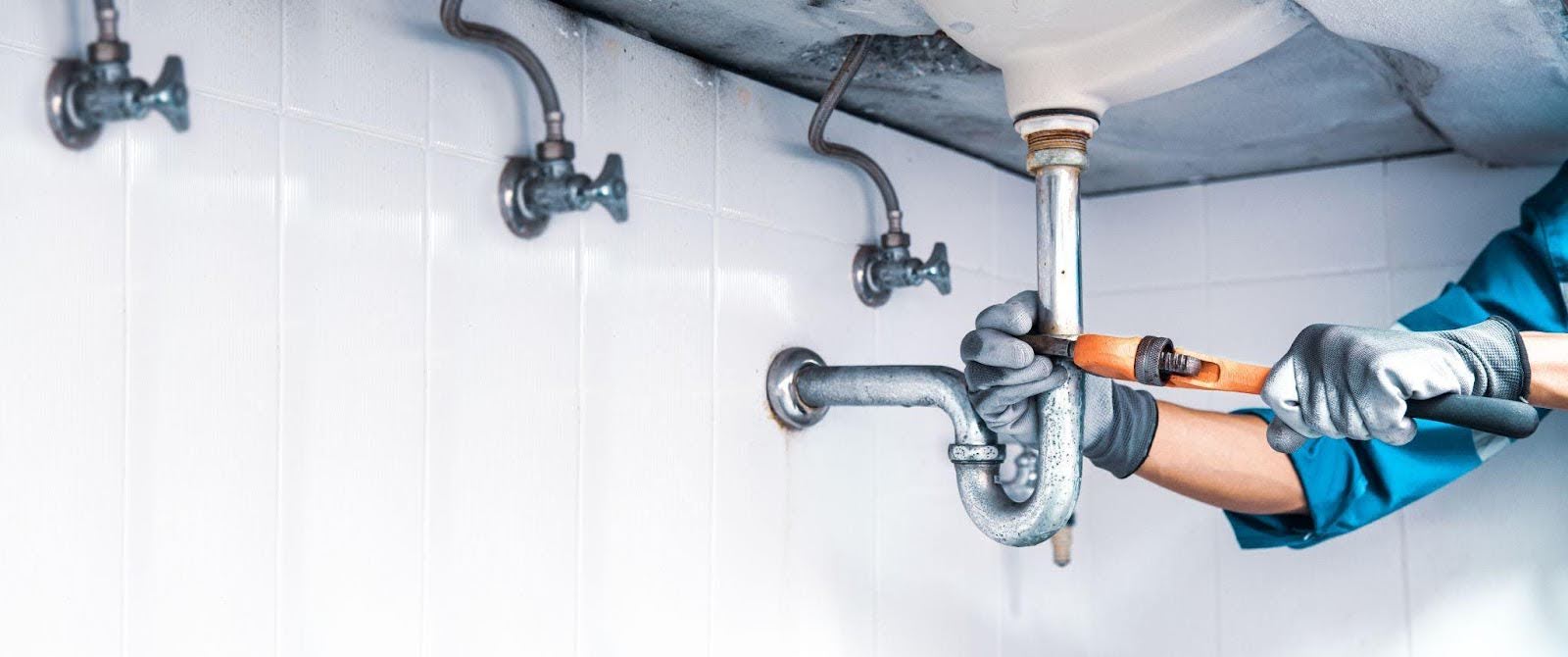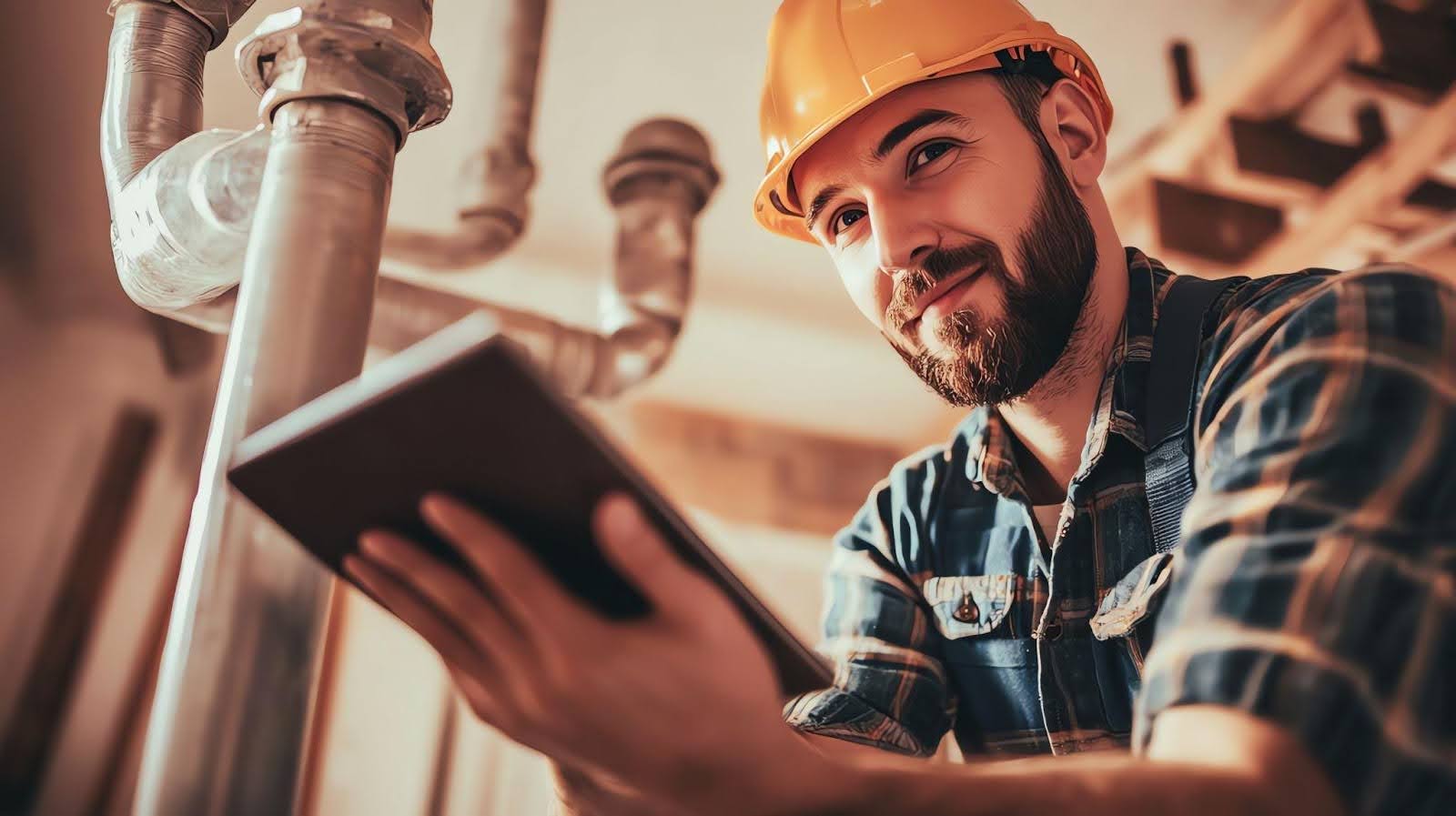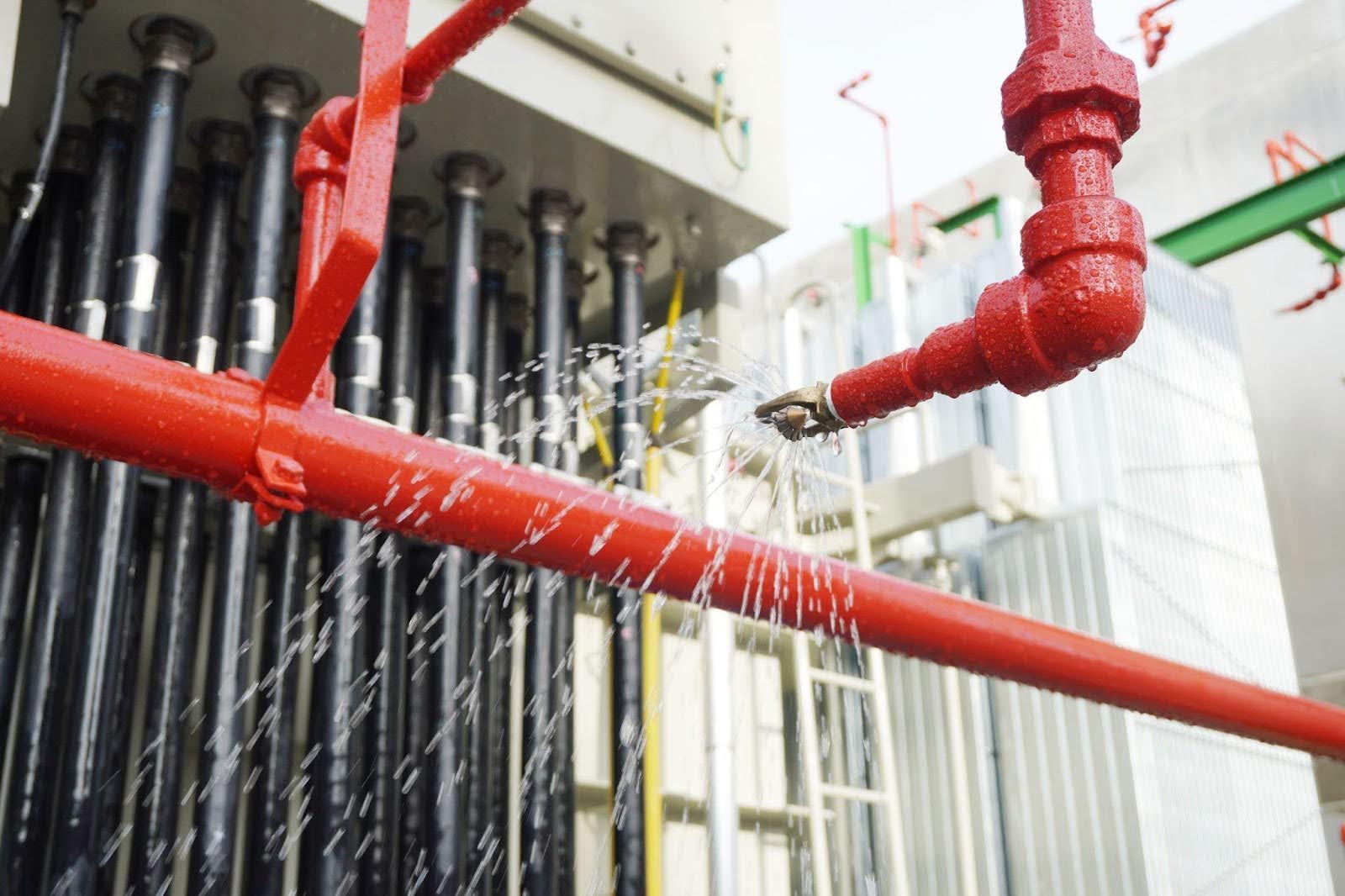As most homes use furnaces for heating, radiant heating systems are not something the average person knows much about.
As plumbing professionals, we know a thing or two about radiant heating that can clarify some common questions. Here are the answers to most people’s questions about radiant heating systems. For more information about radiant heating systems, check out our blog about the pros and cons of radiant heating!
What is a Radiant Floor Heating System?
Most homes use hot air and a system of ducts for heating. Radiant heating systems pump warm water through your floors to warm an entire space, not just the air in a room. It is often seen as a superior, more cost-effective way to heat homes.
Most radiant heating systems use boilers to heat water distributed through the house. Your system will pump the warm water through dozens or hundreds of feet of special pipe installed throughout your home; this even and consistent heat will keep your home at your desired temperature longer than conventional methods.
Does a Radiant Heat System Cost Less to Run Than a Furnace?
Generally, radiant heating systems are less expensive to run and maintain than traditional home heating systems.
This cost-effectiveness is primarily because radiant heating is more efficient at heating a home than a furnace is. Furnaces heat air which is then blown into your home; a boiler will heat water that warms the floor and then the home.
Most of the heat furnaces provide disperses or is lost soon after the furnace shuts down; radiant heating systems maintain a consistent temperature that isn’t as prone to fluctuation. A furnace may have to work harder just to obtain the same results. Running your furnace more often means more energy, which means more money.
Does a Radiant House Take a Long Time to Heat Up a Room?
Compared to other heating systems, radiant heat takes quite a bit to reach your optimal temperature.
On average, it takes 24-48 hours for the temperature in your home to reach your desired temperature . This is because it takes hours to warm your floor – and/or walls if applicable – to the right temperature.
This may seem like a downside because it takes so long to reach the optimal temperature, but the truth is that radiant heating will be more consistent and reliable than other heating methods.
Furnace heat dissipates quickly. You will probably likely be pulling on a blanket when the hot air stops flowing! Radiant heat is constant and consistent.
Can a Boiler be Used for Potable Water and a Radiant Heating System?
The short answer is yes, but it is a complicated one. Radiant heating systems normally use a closed loop system which means that the water used in the radiant system will not be used to heat your home.
The primary concern of using an open radiant heating system is the health of the occupants of the home. Some radiant heating systems use components that aren’t cleared for drinking water.
While you may not ever get sick from drinking water that has been through a radiant heating system, you run a higher risk of falling ill than if you use a separate source to heat the drinking water in your home or a combined system that can manage a closed loop system and separate potable water.
How Do Boilers Heat Drinking Water?
Boilers make warm water in much the same way water heaters do. Where water heaters use natural gas or electric coils to warm your water, boilers will use hot water to do the same.
Your boiler will use a closed system of water, meaning the water it heats directly in the boiler will not be the water used for drinking and washing. Instead, the water the boiler makes will be fed into another chamber through a coil to warm a separate container of potable water.
This prevents potential problems that can come from drinking water cycled by components that aren’t necessarily cleared to handle water for human consumption.
Can I Use Different Fuel Sources for my Radiant Heating System?
Boilers use hot water in a closed system to warm drinking water and provide heating in your home. While you technically only need a fuel source to heat water, the type of boiler you purchase will determine what kind of fuel source you will need to supply.
The standard boiler uses natural gas as the primary heat source. Natural gas burns very clean, meaning it doesn’t leave behind as much residue. Boilers have a relatively long life span because of how clean they can burn without needing to be cleaned.
Alternative fuel sources, like coal, wood, or some form of gas, should not be used in natural gas boilers. Even if you bought a boiler that could accommodate various fuel types, you might find your boiler has a shorter lifespan, especially if you don’t regularly clean it.
Can I Cool My Home with a Radiant Heating System?
While cooling your home with water seems practical and realistic, without a refrigeration unit for your water, you won’t likely experience any cooling from your radiant heating system.
Without a refrigeration unit, your home isn’t likely to cool much. It will be more practical to crack open a window or turn on a fan. It’s best not to count on your radiant heating system to cool off!
Does a Radiant Heating System Help Allergies?
Radiant heating does not circulate air to warm a space. Free-floating particles aren’t disturbed or released into the air like a furnace would do.
This makes radiant heating a good option for people with severe allergies. The air isn’t moved like a furnace would move it, so it may even be easier to keep a clean house if you routinely clean.
Radiant Heating Installation With Salisbury Plumbing
Whether you are looking for someone to help you install a radiant floor heating system or just need a pro to take a look at your boiler, Salisbury Plumbing has the people and skills to help you.
Contact us today to see how we can help you resolve all your plumbing problems!


